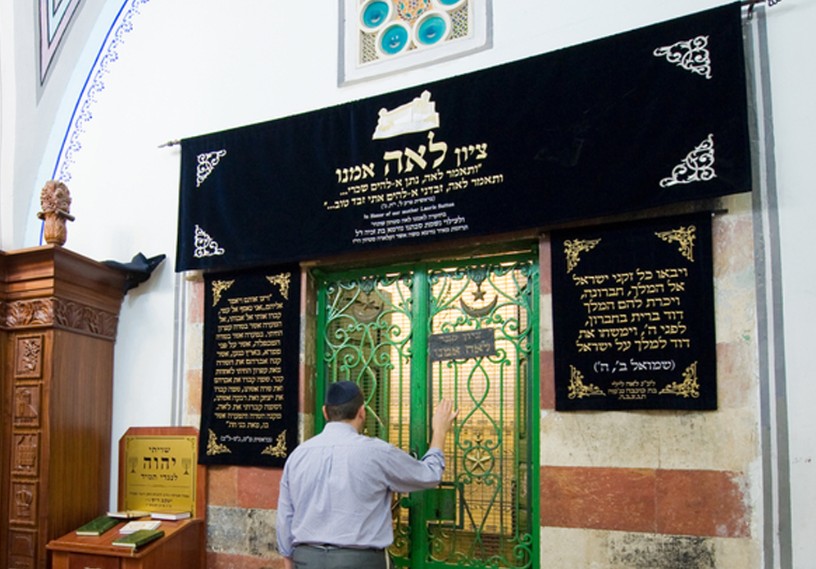Torah Personalities
Leah Our Matriarch: The Power of Prayer, Gratitude, and Spiritual Strength
How Leah’s tears, faith, and devotion shaped the tribes of Israel and transformed destiny

Leah was the eldest daughter of Lavan, sister of Rachel, and the first wife of Yaakov — initially through deception, and later alongside Rachel. She played a central role in building the Jewish people, giving birth to six sons who became six of the twelve tribes. The Talmudic sages focus deeply on Leah’s inner world — her prayer, gratitude, and unwavering faith.
The Power of Prayer
The Alshich HaKadosh explains the verse “Leah’s eyes were soft” as teaching us the spiritual greatness of her prayer. Leah prayed intensely to merit Yaakov as a husband. Despite all odds — Rachel being the younger, destined, and beloved — Leah’s heartfelt tefillah brought her to the forefront.
Trust Only in Hashem — True Salvation Comes Quickly
The Alshich adds that the Torah teaches a foundational principle of emunah: One should not rely on natural forces, but on Hashem alone. Then salvation comes swiftly.
Leah demonstrated this when she willingly gave Rachel the flowers, showing complete trust in Hashem rather than in natural means. In the end, Rachel conceived only after Leah bore two more sons and a daughter.
Leah Was Buried With Yaakov Because of Her Prayer
The Zohar asks why Rachel was not buried with Yaakov. It answers: Leah merited this honor through her spiritual efforts — praying daily at crossroads, crying that she should marry Yaakov and not Eisav. She “prevailed through prayer” and therefore became Yaakov’s eternal partner.
Tears That Break Decrees
The Zohar continues: Leah was originally destined for Eisav. But she cried endlessly — tears of purity and fear of wickedness. Because of those tears, the heavenly decree was torn up.
From Leah we learn that tears shed before Hashem can overturn any decree.
The Power of Gratitude
The Talmud (Berachot 7b) teaches: “From the day Hashem created the world, no one truly thanked Him until Leah did.” As she said, “This time I will thank Hashem.”
Leah became the first human being to express true, heartfelt gratitude.

Great Spiritual Gifts
Midrash Rabbah states that Leah merited the greatest “gifts” within the Jewish people:
Priesthood (Kehunah) — through Levi
Royalty (Malchut) — through Yehudah
Both came from her.
Her Motivation Was Pure
Rashi writes that Leah’s desire to bear many children was purely for Heaven’s sake: She longed to build the foundation of Am Yisrael.
She Passed the Gift of Gratitude to Her Descendants
Midrash Rabbah teaches: “Leah grasped the staff of gratitude.”
From her came great figures known for gratitude:
Yehudah: “She is more righteous than I.”
David HaMelech: “Give thanks to Hashem for He is good.”
Daniel: “To You, God of my fathers, I give thanks and praise.”
Leah’s spiritual essence became a legacy.
Silent Prayer — Hashem Hears the Heart
Midrash Tanchuma teaches that Hashem hears even silent, hidden prayer. Leah prayed internally, with tears and fasting, not to fall to Eisav’s lot. Because of this, Hashem said: “She who wept and prayed shall not be separated from the righteous.”
Thus, she conceived first.
“You Are Merciful — I Will Show Mercy to You”
Midrash Tanchuma recounts Leah’s extraordinary compassion:
Leah foresaw twelve tribes would emerge from Yaakov. She already had six sons and was expecting a seventh. If she bore another son, Rachel would mother fewer tribes than even the maidservants.
Leah prayed: “Master of the world, let this child be a girl so Rachel will not be shamed.”
Hashem answered: “You are compassionate — I will show compassion to you.”
The fetus miraculously changed to a girl — Dina. Immediately after this act of compassion, Hashem remembered Rachel and granted her conception.

